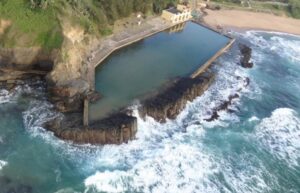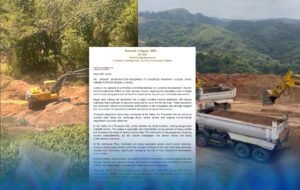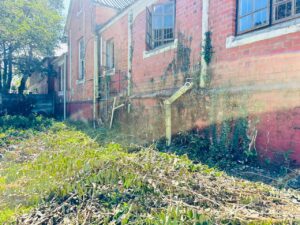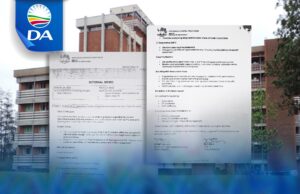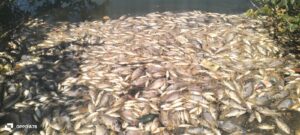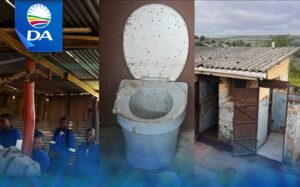The budget for KwaZulu-Natal’s (KZN) Office of the Premier (OTP) remains largely unchanged from the previous financial year, with a slight increase from R784.153m in 2024/25 to R817.875m in 2025/26 million – a 4.3% increase which represents an inflationary increase, rather than any extra allocation.
Both KZN’s Finance portfolio committee and SCOPA were pleased to reflect that the OTP is largely well run with clean audit outcomes. The portfolio committee noted a transfer payment to the Zulu Royal Household Trust (ZRHT) of R27.517 million for the 2025/26 financial year. This is an important transfer aimed at ensuring provision of administration, maintenance and management of the ZRHT assets, including the Royal palaces and farms (in terms of the KZN ZRHT Act of 2018), amongst others.
However, it is also from this allocation that the portfolio committee’s main concern arises. I quote the budget report as follows:
‘The Committee notes with grave concern the continuous failure by the Zulu Royal Household Trust to implement its Programme 3, Fundraising. The Trust was established mainly for this purpose. All political parties in the Portfolio Committee speak in unison that vigorous oversight needs to be performed to ensure this happens. To this end, the Portfolio Committee resolved to request timelines for this, and the appointment of a new Board of Trustees after operating for almost a year without a Board.’
The reality is that a sum of R3.6m was allocated to the Trust in 2018 with the sole purpose of investigating ways to make the Royal Household self- sustaining and a source of own revenue for the province. Yet, to date, this investment has remained largely unrealised. Year after year the issue is raised and year after year excuses are made and little is done.
The main challenge is that the right team has not been assembled for this task. There is no board and the Chief Financial Officer (CFO), while administering the Trust and requirements of the Royal household, simply cannot keep up. This has to be an area of intense focus during the next year, and KZN’s Finance portfolio committee must be relentless in this pursuit. The issue is fundamentally important due to the significant impact that the Royal Household can make in terms of being an income generator for our province.
While researching my debate I discovered that several monarchies, such as those in Bhutan, Jordan, Morocco, Saudi Arabia, and Thailand, rely on a combination of their own wealth, government funding, and private ventures for their expenses. The specific methods vary from country to country, but generally involve government grants, investment income, and private assets – a situation strikingly similar to KZN’s.
The Ingonyama Trust is the legal entity that holds ownership of approximately 2.8million hectares of KZN’s land. The Trust was established in 1994 by the then provincial government to manage this land. The Zulu monarch, the Ingonyama, serves as the sole trustee and the land is held in trust for the material benefit and welfare of tribes and communities living on the land. The Ingonyama Trust represents a remarkable asset that can be ‘sweated’ to achieve so much.
There are numerous monarchies and communities across the world who have decided to utilise their assets to ensure self – sustainability and assuring their long-term future. These communities have realised the universal ideals of the Freedom Charter in its truest sense.
Closer to home, The Royal Bafokeng Nation (RBN) is a success story of a traditionally governed community that strategically leveraged its wealth from platinum mining to achieve sustainable social development and build a strong investment portfolio. Situated on one of the world’s largest platinum reserves, the RBN transformed mining royalties into a diversified investment vehicle, Royal Bafokeng Holdings (RBH), which funds social programs and community projects. This community-based investment approach has enabled the RBN to improve living conditions, support education and healthcare, and build a strong institutional framework.
Key aspects of the RBN’s success story include strategic land acquisitions over time, including through missionary intermediaries, to secure their resource rights and build a strong foundation for their future prosperity. In addition, the RBN has negotiated and receives significant royalties from mining companies, which are then invested through RBH.
RBH manages a diverse investment portfolio, including financial services, telecommunications, and manufacturing. RBN has channelled a significant portion of its wealth into social development initiatives, including infrastructure improvements, educational programs, and healthcare access. RBH has invested in community projects such as the Royal Bafokeng Stadium, the Kgosi Leruo High-Performance Centre, and the Royal Bafokeng Institute demonstrating a commitment to the well-being of its people.
Finally, on the field of institutional capacity, the RBN has built a strong administrative and corporate infrastructure to manage its wealth and implement its development programs, demonstrating a commitment to long-term sustainability. The RBN’s success story is often cited as an example of how a community can effectively manage its resource wealth, avoiding the common pitfalls of the so called “resource curse”.
These facts represent a brief example of the potential of the assets the Royal Household has at its disposal. The sky is literally the limit. With foresight, vision and bold initiative founded on the bedrock of the right expertise and good corporate governance KZN can achieve so much.
As part of KZN’s Government of Provincial Unity, the DA is ready to meet that challenge. Let the same courage and bravery that has defined our royal tradition for the last 200 years now guide us into a future for the benefit of not only the Zulu Monarchy but all the people of our province.


